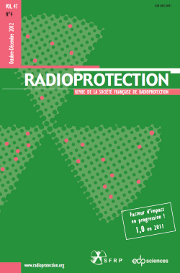Article contents
Local Stakeholder involvement in the perspective of nuclear waste management: Lessons from the COWAN network
Published online by Cambridge University Press: 17 June 2005
Abstract
The management of high level radioactive waste is nowadays recognised as a complex decision-making where no solution can be reached solely on the basis of technical considerations. While this issue is acknowledged as a problem for the community as a whole, waste management remains a global problem looking for a local solution. Starting from this view, COWAM network (Community Waste Management), developed under the Fifth Framework Programme of the European Commission, addressed the following objectives: 1) To empower local actors through a networking process; 2) To gather and discuss the available experiences of decision-making processes at the local level within their national context in Europe; 3) To set up an arena for balanced exchanges between local actors, NGOs, regulators and implementers; 4) To promote new approaches to decision-making in national contexts in Europe. COWAM network comprises 230 delegates from 10 European countries, involving in priority local communities and NGOs. The emphasis put on the local participation enabled members of COWAM network to overcome distrust and to build common lessons and views beyond usual stakeholder positions. Through the analysis of case studies different issues were identified, among them two relate more specifically to expertise and environmental quality in the long term and sustainable development.
- Type
- Research Article
- Information
- Copyright
- © EDP Sciences, 2005
- 1
- Cited by


